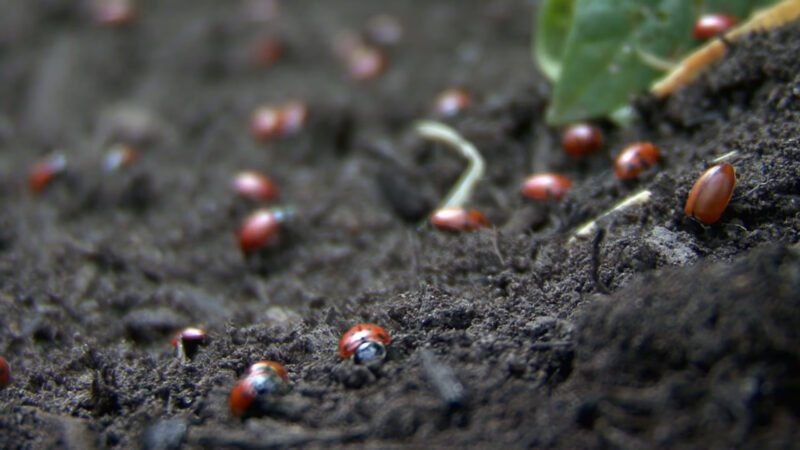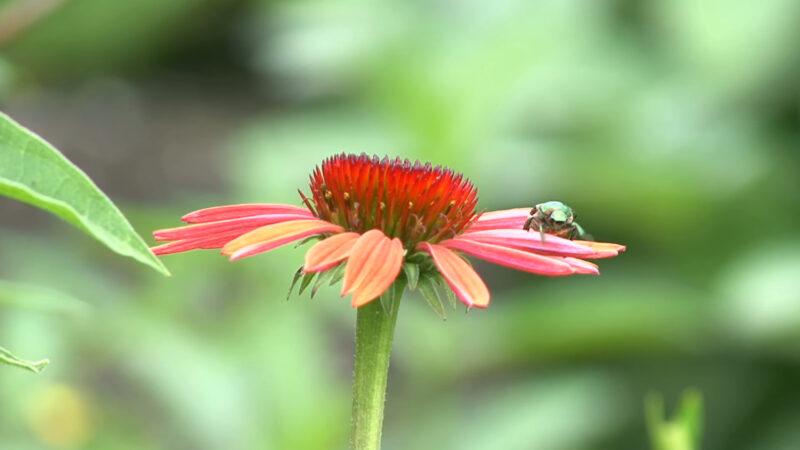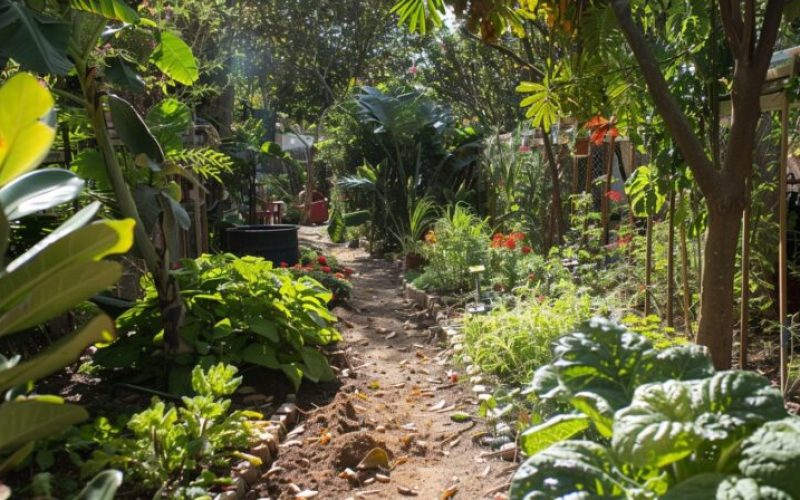Having many different plants in your garden is the right way to go, period. While it may seem like it requires much more work on your behalf, it doesn’t have to be like that.
The trick is to choose the plants that have similar requirements.
Still, the main point is diversity.
If you are interested in how I’ve done it, you can download my guide here.
Let me tell you all about why plant diversity is so important for your garden.
Enhances Biodiversity and Ecosystem Health
Plant diversity plays a vital role in enhancing biodiversity and ecosystem health.
By having a range of wildlife and plant species, gardens create habitats that allow various organisms to thrive.
Each species within this ecosystem has a unique role, contributing to the overall health and functionality of the environment.
For instance, a mix of plants can attract different insects, birds, and other wildlife, fostering a balanced and dynamic ecosystem.
It ensures that the garden remains vibrant and lively, as various species interact and support each other in a symbiotic relationship.
The presence of multiple plant species can provide food and shelter for a variety of animals, enhancing the overall biodiversity and ecological balance.Increases Resilience to Pests and Diseases

Plant diversity increases resilience to pests and diseases. Monocultures, or the cultivation of a single plant, are more vulnerable to outbreaks of pests and diseases.
In contrast, a diverse garden can naturally limit the spread of these issues.
Various plant species can act as natural deterrents to pests and create an inhospitable environment for diseases, reducing the need for chemical interventions.
Different plants can repel specific pests or attract predators that keep pest populations in check.
The natural pest control mechanism helps maintain a healthier garden without relying on harmful chemicals, promoting a more sustainable approach to gardening.
Improves Soil Health
Diverse planting also improves soil health. Different plants have varying root structures, which help prevent soil erosion and enhance soil structure. Some plants fix nitrogen in the soil, while others contribute different essential nutrients, creating a rich and balanced soil environment.
Natural nutrient cycling reduces the need for synthetic fertilizers, promoting sustainable gardening practices.
A variety of root depths and structures improve soil aeration and water infiltration, enhancing soil fertility and overall garden health.
Maintaining a diverse plant community, gardeners can ensure that the soil remains healthy and productive, supporting robust plant growth.
Attracts Pollinators and Beneficial Insects

A variety of plants attract pollinators and beneficial insects. Pollinators, such as bees and butterflies, are essential for the reproduction of many plants.
A diverse garden can support a wider range of these vital creatures, enhancing pollination and, consequently, plant health.
Beneficial insects, like ladybugs and predatory beetles, help control pest populations, contributing to a balanced and healthy garden ecosystem.
By attracting a diverse array of pollinators and beneficial insects, gardens can improve crop yields and overall plant vitality.
Biological pest control reduces the need for chemical treatments, supporting a more sustainable and eco-friendly gardening practice.
Beautifies the Garden
A diverse garden is visually appealing, offering a range of colors, textures, and forms that create a dynamic and ever-changing landscape.
The variety of plant species enhances the garden’s beauty, making it a more enjoyable and engaging space.
Different plants bloom at different times, ensuring that there is always something in flower throughout the seasons.
The diverse palette of flowers, foliage, and plant forms can transform any garden into a stunning visual masterpiece, capturing the attention and admiration of visitors and providing endless opportunities for aesthetic appreciation.
Enhances Garden Enjoyment and Wellbeing

A garden rich in plant diversity can significantly enhance garden enjoyment and well-being.
Exposure to various plants has been shown to improve mental health, reduce stress, and promote relaxation.
The diverse sensory experiences provided by different plants – from their colors and shapes to their scents and textures – can stimulate and soothe the senses, contributing to overall well-being.
Gardens filled with a variety of plants can create a peaceful and calming environment, offering a retreat from the stresses of daily life.
Encourages Outdoor Activity and Interaction
A garden filled with different plants also encourages outdoor activity and interaction.
Gardening becomes a more engaging and educational experience when there is a wide range of plants to care for and observe.
A garden filled with diverse plants can become a personal sanctuary, offering a space for reflection, learning, and enjoyment.
Working with a variety of plants can inspire curiosity and discovery, as gardeners learn about different species, their growth habits, and their ecological roles.
I’m Cameron Lowery, an agriculturist based in the beautiful state of Vermont. Through my writing, I’ll guide you on how to maintain your gardens effectively while embracing sustainable practices.

